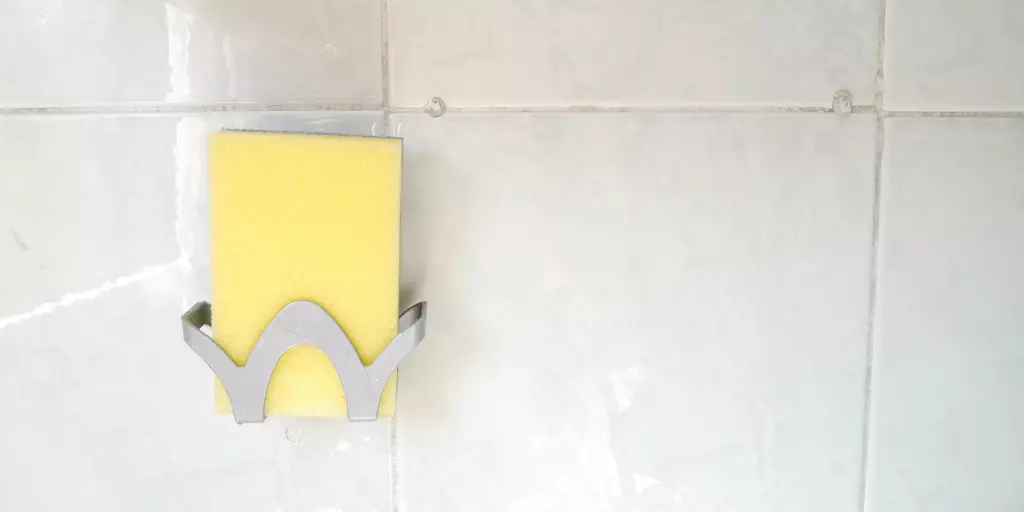
We are encouraged by some health and home life experts alike to replace our kitchen sponges every one to two weeks. We, frankly my dear, think that is ridiculous for many reasons, number one being the sheer amount of unnecessary waste.
Though it might not sound like much for the individual home, consider the vast number of households following this advice. As regular readers of R&R know, we promote sustainable life hacks from small to large, everything from alternatives to disposable razors, sustainable substitutes to toothpaste, to renewable energy.
At around 400 million sponges discarded domestically per year, this volume is enough to fill the Empire State Building. And while purchasing a compostable sponge might not feel like a dent in this figure, every step toward a more sustainable future is a step in the right direction.
So, how are sponges bad for the environment? Read on to learn about the problem with plastic-based sponges, the benefit of biodegradable sponges, and how to easily extend the life of sponges well beyond two weeks.
Why Sponges Are No Friend to the Planet
Conventional sponges already play a major role in microplastic pollution, with tiny particles frequently washing down our drains. While these fragments are miniscule, they accumulate to wreak havoc on our ecosystems.
Coupled with a coating of Triclosan, an EPA-registered pesticide, these plastic-based sponges can heighten environmental damage.
This harm compounds when these non-biodegradable, pesticide-packed sponges find their way into our landfills and oceans.
With more than 140 million U.S. families tossing sponges every year, it’s no surprise that this disposal often causes irreparable damage.
It’s no longer a question of asking are sponges bad for the environment. The damage has been studied and published globally. It’s now time for action and investment in biodegradable alternatives.
Compost Your Compostables!
Options for biodegradable kitchen sponges are seemingly endless. If you’re considering a biodegradable kitchen sponge, check out TerraEquip’s 100% natural sponge from our list of budget and eco-friendly gifts.
Product designers have a full life cycle in mind when creating biodegradable products. These materials can become the ideal meal for microorganisms, but consumption is only possible in the right environment.
But if they don’t make it to a bin where they can begin decomposition, their purpose goes unfulfilled. A label describing a product as ‘compostable’ doesn’t mean it will magically decompose in any environment.
As we highlighted in our post about speeding up your compost cycle, these microorganisms that eliminate our waste require a balanced mix of ingredients, air, and water to break down these products. And this isn’t possible in a landfill.
Producers committed to providing eco-friendly options are doing their part, so it’s time for consumers to widely share an increasingly important message. If we want to see the full benefits of composting, we must dispose of biodegradable waste correctly.
Because most people don’t compost at home, it’s almost inevitable that landfills have become the endpoint for compostable products. But it doesn’t have to be. If you haven’t tried at-home composting yet, consider incorporating it into your sustainable home routine.
Our guide to why composting is important (and some disadvantages) to composting is a good place to start. Or check out all the weird and amazing composting facts to get inspired.
Beware of Greenwashing Promises

Compostable waste being poorly disposed of doesn’t necessarily mean carelessness on the consumer’s part. Considering the range of compostable packaging that exists, it’s not surprising that there’s been some confusion about what goes where.
Some producers hide behind a thin veil of environmental awareness or dubious certifications (like the risk of B Corps and greenwashing), failing to provide the necessary product details.
For example, Tesco, a U.K. supermarket franchise, has released degradable bags in their stores. The issue is that this bag is neither compostable nor recyclable; it just happens to degrade a little faster than regular plastic.
There is no one-size-fits-all approach to composting, but accurate guidelines and instructions are out there. It just requires a little research that will reap long-term benefits.
Be Wary of “Natural” and “Plant-Based” Sponges
Unfortunately, you need to pay close to the labels of sponges. Some companies use marketing language that can be confusing, or in some cases intentional greenwashing.
Full Circle’s walnut-covered sponge is an example of a good company with a bad design choice. At first glance, Full Circle calls it “plant-based” but upon closer inspection you will find a surprise.
Though the company uses some biodegradable ingredients, they also include “recycled plastic” as an ingredient.
It is a little unclear what percentage of the sponge is recycled plastic, but anything above zero will choke your little garbage eating friends chilling in your compost bin.
Getting the Most Out of Your Compostable Sponge
We’ve all been guilty of failing to ask two important questions: are sponges bad for the environment, and what damage are they causing?
But if you invest in a biodegradable sponge, you’ll get its long-lasting value that coincides with carbon footprint reduction. Overall, a lack of proper care plays the most significant role in shortening sponge life.
Wet, balled-up sponges create a breeding ground for bacteria and affect the quality and strength of the clean it provides. People might assume there’s an increased workload in maintaining and composting biodegradable sponges, but it’s simple.
Just rinse it thoroughly, wring it out, and hang it to dry in iDesign’s Stainless Dish Sponge Holder for an effective airing.

For a strengthened clean, try a weekly soak in a mix of water, vinegar, and salt. Remember, different sponges sometimes require different care, so make sure to look into how to extend the longevity of your sponge.
You don’t have to use your sponges just for dishes. To eliminate the use of paper towels, keep a series of sponges for different uses.
Designate one sponge for general kitchenware and keep another on-hand to mop up leaks and spills that could spread bacteria.
If you do use paper towels around the house, do not forget composting paper towels is better than a landfill.
No matter how much effort you put into maintenance, every sponge has an expiry date. Be on alert for tell-tale odors that let you know it’s time for the compost bin.
Eco Alternatives to Compostable Sponges
Living an eco-friendly life isn’t about rushing out to buy the newest, greenest product on the market. It’s about using everything in your home so you can eliminate waste and limit consumption.
Challenge yourself to create an alternative to sponges with items found only around your home. Inspect forgotten corners in your house for sponge filler, the ideal type being quick to dry, like polyester stuffing or batting scraps.
A simple flannel coating will work perfectly on one side. To tackle tough stains without scratching kitchen pans, try scraps of lace, tulle, or the netting from fruit bags found in most supermarkets.
Old towels would do the trick here too, given its somewhat abrasive texture. Other tools needed for the job include household items you’re bound to find nearby, such as a thread, ruler, and scissors. You can repurpose one old towels to create the equivalent of a dozen sponges.
Don’t forget that cotton is compostable too. You can just cut up those old towels into even smaller pieces and they will disappear in your compost bin.
Will You Make the Move to Eco-Friendly Sponges?
As a less-than-exciting household item, the disposal of sponges might not seem too important a factor in the fight against climate change. As we saw in the case of our hypothetical citizen, Mr. Average, household waste is a small part of your overall carbon footprint. But we know the cumulative effect of the buy-use-discard lifestyle, when considered in a global scale, is staggering.
We must encourage the people around us to ask themselves: are sponges bad for the environment?
Instead of contributing to the 400-million sponges discarded per year, support an eco-focused business and leave plastic-based sponges on the supermarket shelf.
Here at R&R we only endorse products we have owned, tested, and fell in love with. If you end up making a purchase through one of our affiliate links, we may earn a very small commission that offsets a portion of the cost of hosting, building, and maintaining this site.